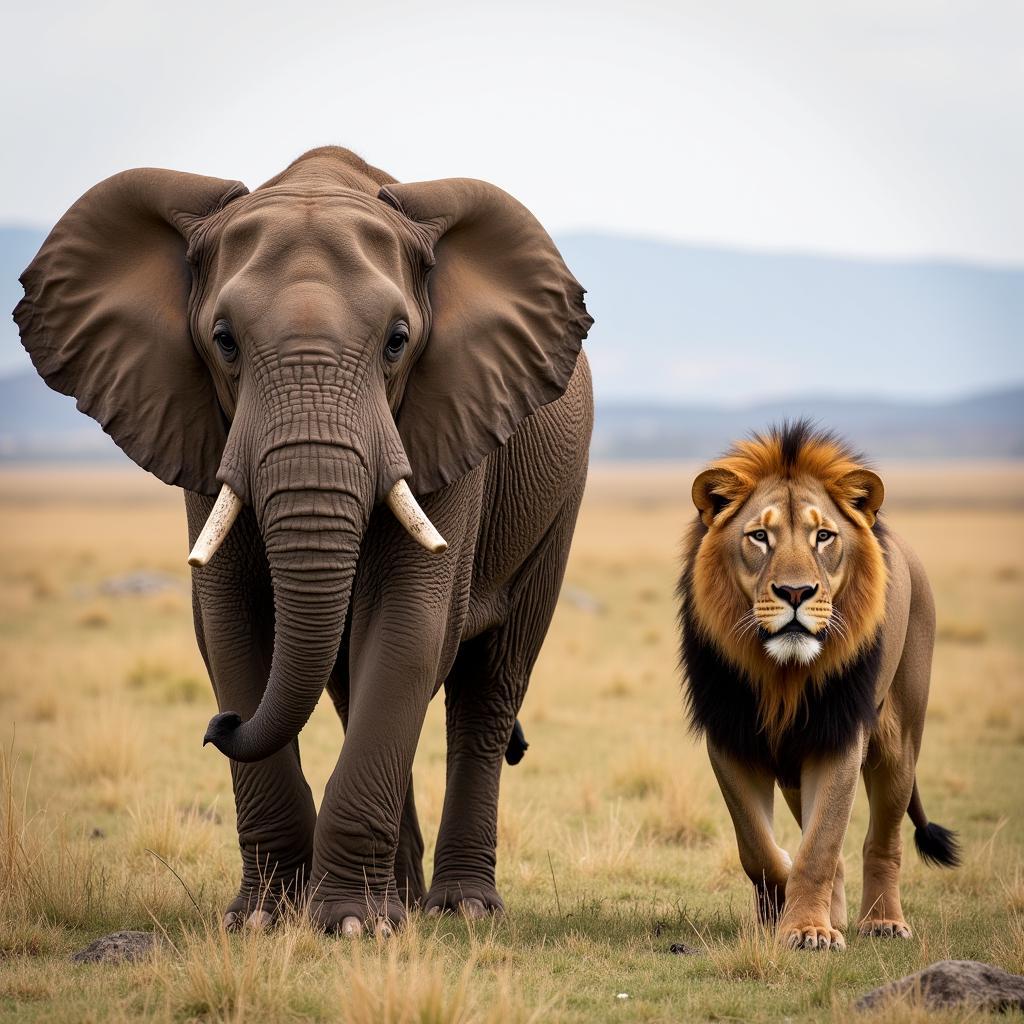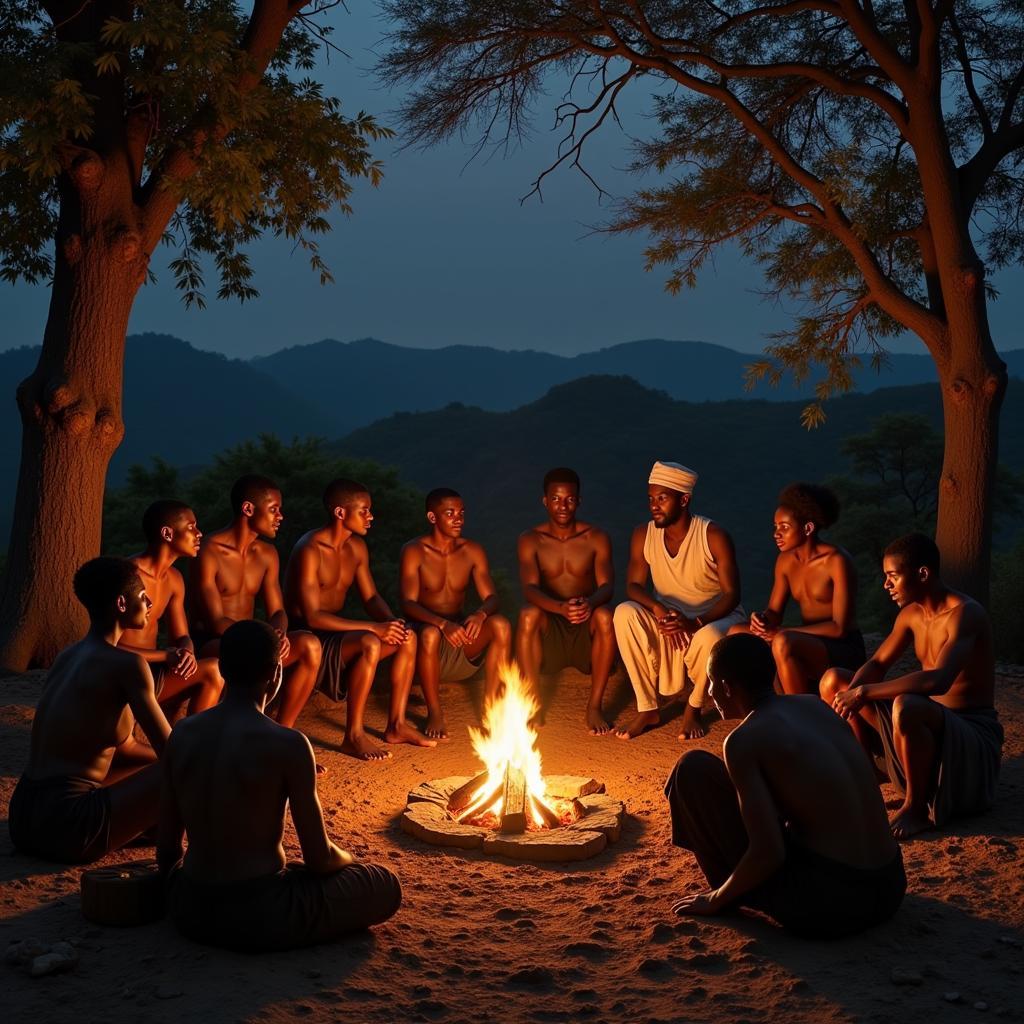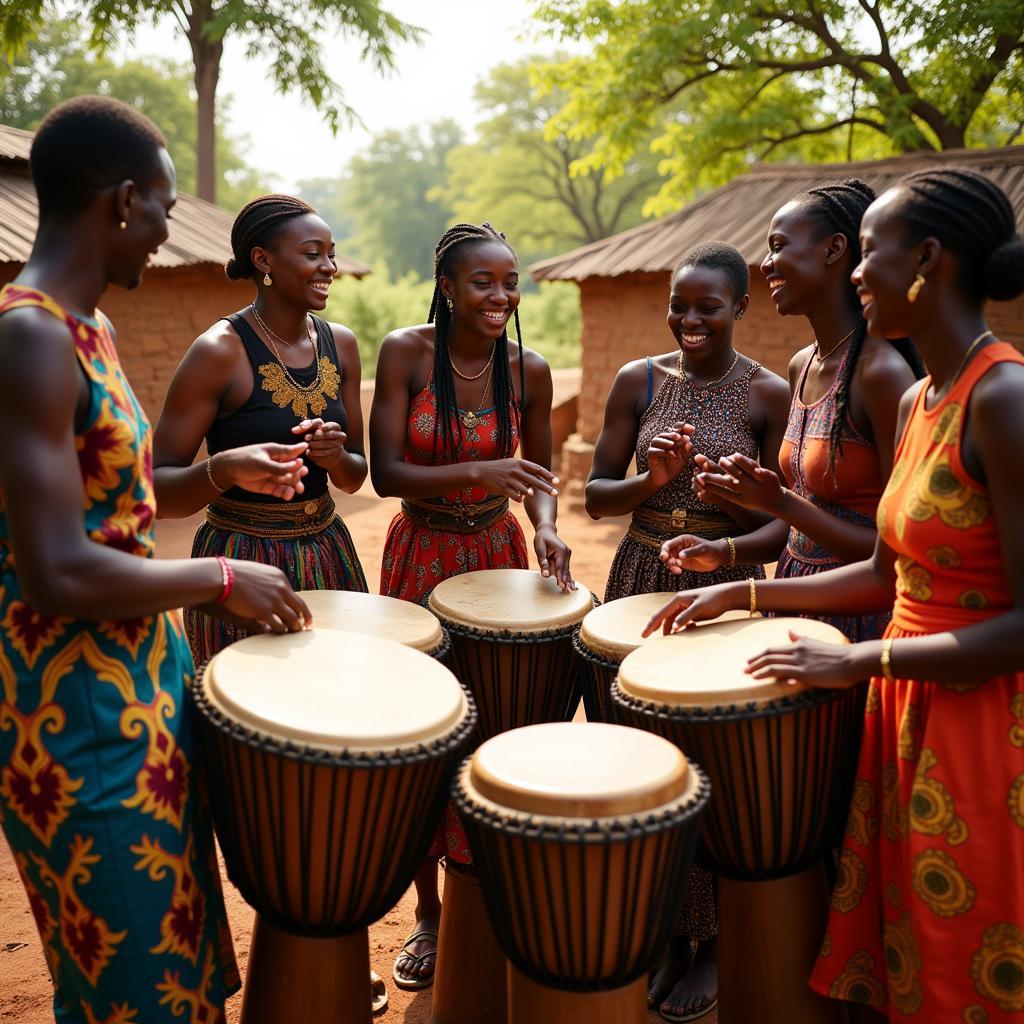African Bush Elephant vs Lion: An Epic Showdown on the Savannah
The African bush elephant and the lion: two iconic animals that rule the African savanna. One, a herbivorous giant, the other, a carnivorous hunter. While their paths rarely cross in a life-or-death struggle, the question remains: in an epic battle of African Bush Elephant Vs Lion, who would emerge victorious?
 African Bush Elephant vs Lion Size Comparison
African Bush Elephant vs Lion Size Comparison
The Tale of the Tape: Size and Strength
Let’s start with the obvious: size. The African bush elephant is the largest land animal on Earth, with males reaching up to 13 feet tall and weighing over 6,000kg. Lions, while formidable, are dwarfed in comparison. A large male lion might reach 9 feet in length and weigh around 250kg. The elephant’s sheer size makes it an intimidating opponent, capable of crushing a lion with a single foot stomp.
But size isn’t everything. Lions are apex predators, built for speed and agility. They can reach speeds of up to 80km/h in short bursts and possess incredible strength, allowing them to take down prey much larger than themselves.
Weapons of Choice: Tusks, Trunks, and Teeth
Both animals come equipped with an arsenal of deadly weapons. The elephant boasts massive tusks, capable of reaching over 10 feet in length. These ivory swords are formidable weapons, used for defense, offense, and even digging for water. The elephant’s trunk, weighing up to 140kg, is another powerful tool. It can be used to lift objects weighing over 250kg, deliver bone-crushing blows, and even toss a lion through the air.
Lions counter with razor-sharp claws and teeth. Their retractable claws, up to 7cm long, are designed for grappling and tearing flesh. Their powerful jaws, capable of delivering a bite force of over 600 PSI, can crush bones and deliver a fatal blow.
Group Dynamics: Elephant Herds vs Lion Prides
Elephants and lions are both social animals, but their social structures differ significantly. Elephants live in matriarchal herds, led by an older, experienced female. These herds can range in size from a few individuals to over a hundred, offering safety in numbers. A lone lion would be foolish to attack a healthy adult elephant within a herd.
Lions live in prides, typically consisting of related females, their cubs, and a few adult males. While lions are cooperative hunters, taking down large prey like buffalo and giraffe, they are less likely to risk injury by attacking an animal as large and well-protected as an adult elephant.
The Verdict: A Matter of Circumstance
So, who would win in a fight between an African bush elephant and a lion? The truth is, there’s no easy answer.
While a pride of lions could potentially kill a young, sick, or injured elephant, a healthy adult elephant within its herd is practically invincible. The elephant’s size, strength, and weaponry, coupled with the protection of its herd, make it an incredibly formidable opponent.
A lone lion, on the other hand, would stand little chance against an adult elephant. The elephant’s size and strength would be too much for even the fiercest lion to overcome.
Ultimately, the outcome of any encounter between these two magnificent creatures would depend on various factors, including age, health, social context, and a fair bit of luck. One thing is for sure: it would be a spectacle to behold!
FAQs about African Bush Elephants and Lions:
-
Do lions ever attack elephants? While rare, lions have been known to attack young, sick, or injured elephants, particularly when food is scarce. However, attacking a healthy adult elephant within a herd is extremely risky.
-
Do elephants eat meat? No, African bush elephants are herbivores, meaning their diet consists primarily of plants, fruits, and bark.
-
How long do African bush elephants live? The average lifespan of an African bush elephant is around 60-70 years in the wild.
-
Are African lions endangered? Yes, African lions are classified as Vulnerable by the International Union for Conservation of Nature (IUCN), with their populations declining due to habitat loss, human-wildlife conflict, and poaching.
Explore More:
Interested in learning more about the fascinating lives of African animals? Check out these related articles:
Need help planning your dream African safari?
Contact us!
Phone: +255768904061
Email: [email protected]
Address: Mbarali DC Mawindi, Kangaga, Tanzania.
Our team is available 24/7 to assist you.


